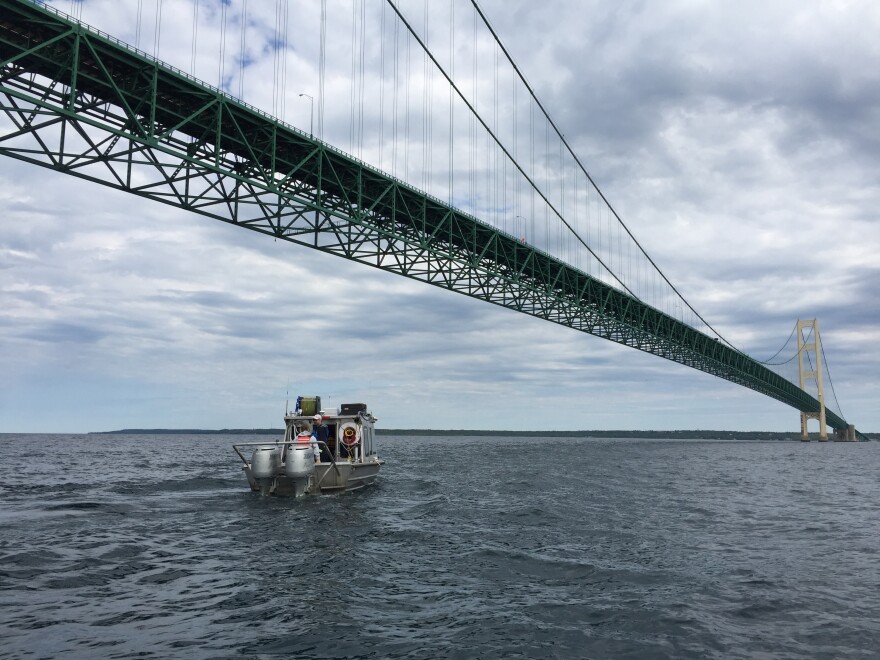It’s not an F, but it is an I for Incomplete.
That’s the grade a federal judge is giving regulators for approving Enbridge Energy’s emergency response plan for an oil spill from Line 5, the pipeline that runs under the Straits of Mackinac.
The National Wildlife Federation sued the Department of Transportation and other federal safety regulators in 2017, arguing they’d been hasty in approving the plan and didn’t do enough to assess environmental risks.
Now Federal Judge Mark Goldsmith isagreeing with them,at least in part. He’s sending Enbridge’s plan back to regulators for more work, telling them to “explain with specificity its reasons for the approvals, to consult with the appropriate environmental agencies before approving any response plan for the Superior Region Response Zone or the Great Lakes Response Zone that may affect endangered species or habitats,” and to comply with federal policies to create an “environmental assessment or an environmental impact statement consistent with the law before approving any response plan…”
The National Wildlife Federation is treating this as a win, saying this ruling “confirms what we’ve known for years - Enbridge is not prepared for an oil spill, and the federal government is not doing enough to protect the Great Lakes,” Beth Wallace, Great Lakes partnerships manager at the NWF Great Lakes Regional Center, said via written statement.
While Enbridge Energy’s spokesman did not immediately respond to requests for comment, the company spokesman, Ryan Duffy, sent along the following statement Monday afternoon.
"Enbridge has developed and implements very thoughtful and thorough emergency response plans to respond to any size of a release from Line 5, including any release at water crossings made by Line 5, such as at the Straits. Our in-depth response plans provide detailed response strategies for emergency responders to a release at any point along Line 5. The court found no fault with Enbridge’s response plans for Line 5, and specifically found that those plans identify a worst-case discharge, sufficient equipment to respond to that discharge, and that further response plans for the Line 5 water crossings are not required by federal law. The current response plans also serve as a supplement to Enbridge’s Integrated Contingency Plan that was drafted and approved in 2013 following an extensive, PHMSA-coordinated peer review, which incorporated input from the U.S. Coast Guard, U.S. EPA, an independent industry expert, and Canada’s National Energy Board. With that said, in the past five years, we have invested billions of dollars in safety and integrity to make preventing leaks and spills our highest priority. Line 5 is monitored 24/7 by a dedicated team. If there is a change in pressure or flow, Enbridge can remotely and automatically shut off flow within three minutes and activate trained responders. Our policies and procedures demand that Enbridge pipelines and associated facilities are operated safely. We are committed to protecting the Straits, and Great Lakes, through the continued safe operation of line 5, which was built to protect the Straits. We regularly hold exercises to make sure we are ready to respond. In the past those exercises have included the U.S. Coast Guard, U.S. EPA, the Michigan Department of Environmental Quality and local emergency responders. You can find information on Line 5 at www.enbridge.com/line5."
Enbridge Energy is one of Michigan Radio’s corporate sponsors.







